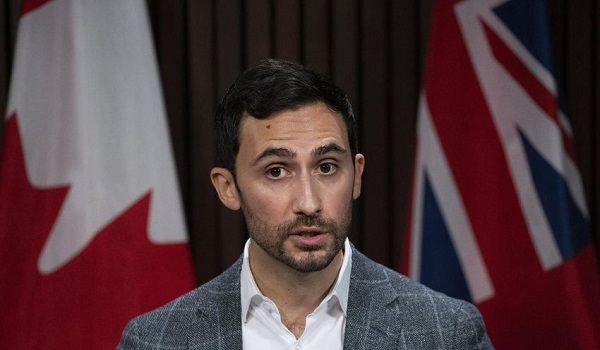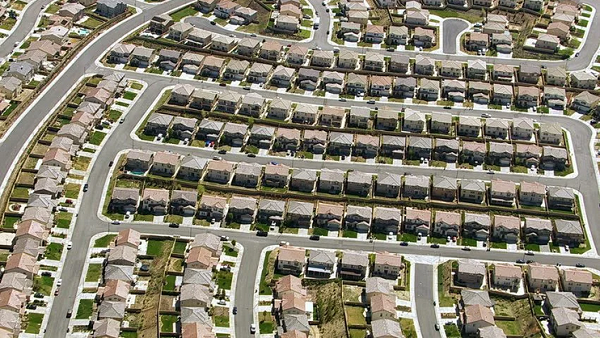Toronto turning into a lonely place, increasing housing crisis not helping the matter
Toronto has become an increasingly lonely place, and its housing crisis is fueling the problem.
After a recent report sounded a warning alarm for Canada’s most populous region — finding that more than a third of local residents are lonesome at least three days a week, and that people’s networks of close family and friends have thinned away — the report’s lead author says the impact of ever-climbing housing costs, and the precariousness of today’s real estate market, cannot be ignored.
“There’s a bit less permanance in the city than there used to be,” says Steve Ayer, head researcher for the Toronto Foundation report. “And I think that would have a lot of connection to loneliness.”
The report, released last week, aimed to take a pulse on the well-being of Torontonians — and found the region to be one of the loneliest places in all of Canada. In addition to eroding social ties, it pointed to a decline in residents’ participation in community activities such as arts, culture, sports and recreation.
And while their research identified numerous factors at play, Ayer and other experts see the region’s waning affordability — with housing bills, especially, eating up more of people’s monthly budgets — as a quiet but forceful driver of its worsening social woes.
Take the example of a young family struggling to pay their housing bills. If they decide to pack their bags and move an hour down the highway, it likely means fewer visits from family and friends. Even if a household isn’t quite there yet, Ayer knows it’s a thought in the back of many minds, which he expects could prevent people from getting involved with their community or putting down roots — knowing that when they have kids, or retire, they may be forced to relocate elsewhere.
“There’s an incredible sense of precarity, and temporariness,” Ayer said. “That deterioration in affordability really contributes to that ongoing decline in people’s mental health.”
The stakes are severe, the new report warns — labelling the trend “incredibly dangerous,” with past research showing isolation can be worse for a person’s mortality than drinking, physical inactivity, obsesity or air pollution. Only the Maritimes matched the rates seen in the Toronto area — with 35 per cent of respondents feeling lonely at least three times a week, versus the national average of 28 per cent.
‘It’s gotten incredibly expensive’
Look close, Ayer said, and you’ll see signs of the ties between economic precarity and isolation. He offers the example of a person trying to hang onto their life in Toronto, taking on a second job to meet rising costs — in turn, cutting into hours usually spent with loved ones. Their research found higher rates of frequent loneliness among those who work part-time jobs and full-time roles at the same time.
Financial strain was also a strong predictor of loneliness, with 44 per cent of respondents who reported high degrees of loneliness countrywide also reporting that their income wasn’t enough for them. The number of households who reported insufficient income has been climbing in recent years, going from 20 to 33 per cent since 2018, the report says. “It’s gotten incredibly expensive,” he said.
And in the cost-of-living equation, housing is a major force. For anyone hoping to purchase a home, real estate costs uncoupled from the growth of incomes around 2000, with a gap growing in the years since.
Rents, too, have risen quickly in recent years. In December 2018, the average one-bedroom unit listed on rentals.ca was $2,135 — a price that required a household to make around $85,000 to comfortably afford their bills. Last month, that average was $2,615, requiring at least $105,000.
For some, that’s simply too much to bear.
In 2022, the Canada Mortgage and Housing Corp. found that nearly 12 per cent of tenants in Toronto’s private rental market had fallen behind on payments. That year, 32,914 renter households reported being in arrears, which was a jump of 7,584 — nearly 30 per cent — in one year, according to a synopsis of the findings contained in a city housing data report released in March of this year.
That puts those households in jeopardy of eviction, which Ayer says could also drive loneliness, if people were forcibly displaced from their familiar communities. Community involvement had clear positive impacts on people’s mental health, sense of belonging and social connectivity, he noted.
‘That human connection piece is vital’
When someone is in “survival mode” — working multiple jobs or just trying to hang onto a precarious housing setup — it could feel “virtually impossible” to foster connections with other people, says physician Andrew Boozary, director of social medicine for Toronto’s University Health Network.
He, too, sees social isolation as a serious health threat — one that could exacerbate a person’s risk for anxiety, dementia, depression, even strokes. The magnitude of the problem is such that other countries have appointed government ministers of loneliness, Boozary said (as seen in the U.K.)
“Loneliness has become, in many ways, one of the most important public health concerns that we’re grappling with right now,” Boozary said.
If decision-makers wanted to tamp down on social isolation, he sees multiple avenues to do so, including bolstering outreach to vulnerable populations like seniors. But housing is a key piece, he argued. If there were more affordable housing options, he believes fewer people would be just scraping by — giving them a chance to focus, instead, on nourishing personal relationships.
“That human connection piece is vital,” he said.
‘We’re sort of tearing families apart through this housing crisis’
Karen Chapple, director of the University of Toronto’s School of Cities, sees social connection not only as vital for individuals, but for communities to thrive.
“Social ties are what make cities happen, and they’re what cities do best,” she said.
But those connections could fray, she warned, when people were forced to relocate from their communities because they were now too expensive.
“We’re sort of tearing families apart through this housing crisis and the inability to stay together,” Chapple said. “We have a number of folks that settled in rural areas, small towns, even midsized cities that we hear about remorse — or just the challenge of starting up again in a new place when your family and childhood friends live two hours away.”
She sees the loneliness data as a warning bell — and a cause for further examination. Rising housing costs were certainly a piece of the puzzle, she noted, and she wonders how other factors — like people’s sense of safety and security — might play into the trend. It is important to pinpoint those causes, she told the Star, and dig deeper into what could be done to reverse today’s trajectory.
“This is essential to Toronto’s future,” she said.
This article was reported by The Star















